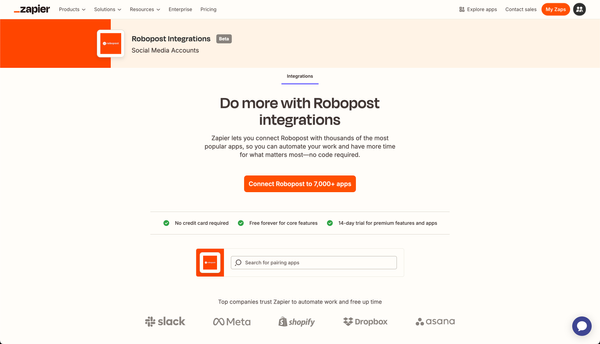Social Media Marketing for B2B Companies: Strategies and Tips
Discover practical ways to improve engagement and stimulate growth in your B2B social media marketing efforts with this helpful guide.

In today's digital world, B2B companies are turning to social media marketing to grow their brand and connect with their audience. This article explores effective strategies for B2B companies to make the most of social media marketing.
Key Takeaways
- B2B companies need social media marketing to boost brand recognition, show expertise, and generate income.
- Define specific, measurable goals that match business goals for a successful B2B social media plan.
- Pick the best social media platforms to connect and interact effectively with a B2B audience.
Laying the Foundation: Setting Strategic Goals for B2B Social Media Success

Establishing SMART Goals for Measurable Success
To make sure your B2B social media marketing is effective and matches your business goals, it's important to create SMART goals. These goals should be Specific, Measurable, Achievable, Relevant, and Time-bound, giving you a clear plan for success.
For example, instead of a general goal like 'increase online presence,' a SMART goal would be 'raise LinkedIn followers by 15% in the next quarter.' This goal specifies the platform, the target, and a realistic timeframe for reaching it.
Here's a breakdown of what your SMART goals might involve:
- Specific: Clearly define what you want to achieve, like boosting website traffic from social media by 20%.
- Measurable: Use key performance indicators (KPIs) to track progress, such as tracking leads from social campaigns.
- Achievable: Make sure your goal is realistic based on your resources and market conditions, and avoid focusing on metrics that don't add value.
- Relevant: Align the goal with your overall business strategy and the types of customers you want to attract.
- Time-bound: Set a deadline to concentrate efforts and evaluate success over a specific period.
Aligning Social Media Objectives with Business Targets
To make sure your social media efforts really help your company succeed, it's important to connect your social media goals with your overall business goals. This connection means every tweet, post, and interaction has a clear purpose that moves you toward your business targets.
Here are the steps to follow:
- Define Clear B2B Social Media Marketing Goals
- Know Your Target B2B Audience
- Choose the Right Social Media Platforms
- Create Engaging Content
- Foster Genuine Relationships
- Use Paid Advertising & Targeting
- Track Results
By following these steps, you create a solid plan where social media supports your business. For example, if your goal is to be seen as a thought leader, your social media should share industry insights and start meaningful discussions.
Keep in mind, your chosen platforms should match what your audience likes, and regularly checking your results helps you adjust your strategy to stay on track with your business goals.
Choosing the Right Platforms: A Guide to B2B Social Media Selection

Understanding the B2B Social Media Landscape
Navigating social media for B2B requires a smart strategy that fits the needs of business audiences. Knowing your B2B audience well helps you choose the right platforms and make messages that connect with them. Different platforms offer different ways to engage B2B companies.
- LinkedIn is great for professional networking and B2B interactions.
- Twitter is good for quick updates, discussions, and sharing industry news.
- Facebook has a big user base, useful for brand awareness and targeted ads.
- Instagram and YouTube are good for visual storytelling and showing products.
Since over half of B2B marketers use social media to drive revenue, having a strong social media strategy is more important than ever. It's not just about being on many platforms but using them well together to tell your brand's story. By seeing how effective platforms are for B2B, businesses can use their resources wisely and make sure social media helps their overall marketing goals.
To check how well platforms work, think about what each one does best and how it fits your goals and where your target audience is most active.
- Use tools that track campaign growth and where customers come from.
- Make interesting content that your B2B audience likes.
- Test different ads to see what works best.
For a balanced approach, mix regular posts with targeted ads, dividing your audience to send them the right message.
The aim is to get people interested, boost your brand, and grow your business. By using analytics and tests, you can improve how you connect with your audience, making sure your social media helps your overall goals. Robopost can help you schedule posts for multiple social media platforms and find the best times to post.
Using multiple platforms is important to reach more people and create a connected experience across channels. It's not just about being on many platforms, it's about having a consistent brand message everywhere.
Building Relationships and Trust: The Human Side of B2B Social Media

Fostering Authentic Connections with Your Audience
In B2B social media, it's crucial to build real relationships. When you respond promptly and sincerely to comments and questions, you show that you care about your audience's thoughts and see them as more than just potential sales. This not only makes your brand more relatable but also builds trust and loyalty, which are key for long-term success.
To truly connect with your audience, you need to speak to them in a way that feels personal. Customizing your messages to the people behind the businesses can lead to deeper connections and, ultimately, turn them into clients.
- Respond quickly and genuinely to show you value their opinions.
- Use social media for live chats and behind-the-scenes looks.
- Join industry conversations to showcase your knowledge and dedication.
By focusing on your customers' needs and being open and honest, you can create loyalty and give your brand a human touch.
Engaging in Meaningful Conversations and Community Building
Having meaningful conversations means more than just replying to comments or messages in B2B social media. It's about creating a space where discussions can thrive. By actively joining industry talks and sharing insights, companies can establish themselves as experts and trusted advisors.
Building a community on social media takes ongoing effort and a thoughtful strategy. It's about making your audience feel valued and listened to, where they can interact not only with your brand but also with each other.
To keep this community strong, consider these steps:
- Respond quickly to customer questions and issues.
- Share useful content that educates and informs.
- Host webinars and create spaces for live chats.
- Encourage users to create content to boost engagement.
The aim is to keep the community active and growing. This means not just gaining followers but also keeping them interested with valuable and interesting posts. By investing in these relationships, you'll build loyalty and influence, leading to long-term business success.
Conclusion
Social media marketing is crucial for B2B companies. By having clear goals, knowing your audience, picking the right platforms, and making interesting content, you can form real connections and boost your business. Consistency, patience, and being open to change and feedback are key to success. Whether you're starting or improving your strategy, the advice in this article will guide you through B2B social media marketing confidently.
